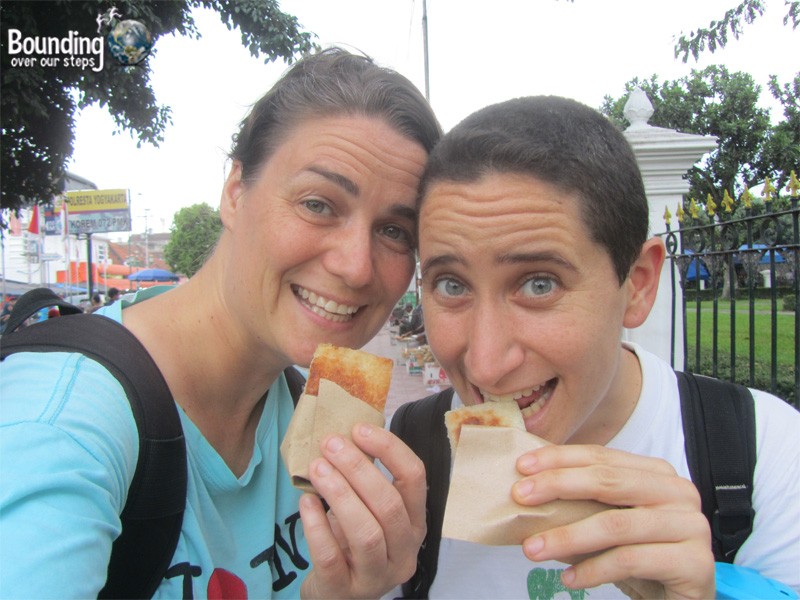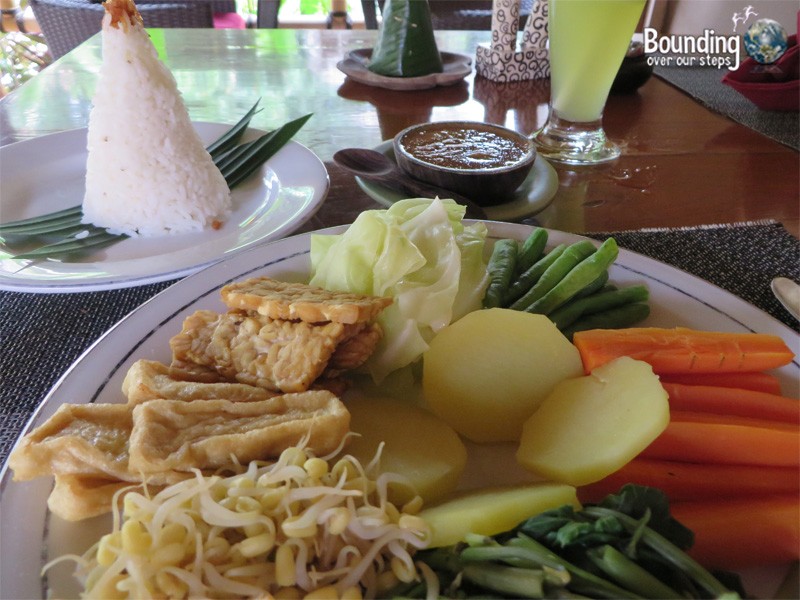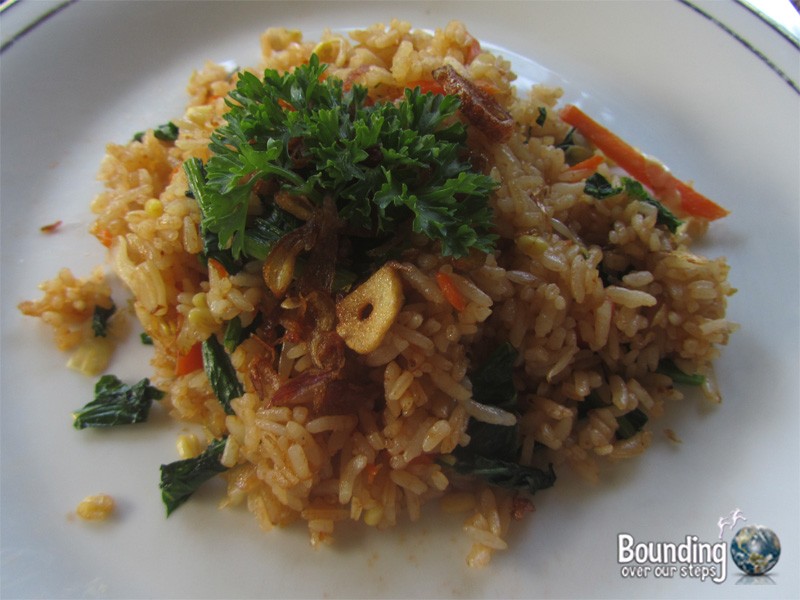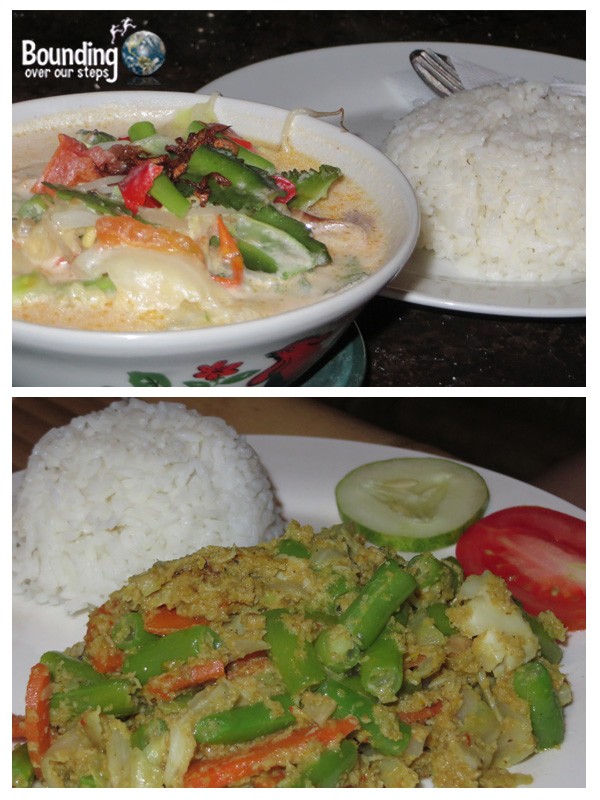Are vegetarian or vegan options readily available in Vietnam, especially in homestays? Yes, vegetarian and vegan choices are increasingly accessible in Vietnam, and SIXT.VN is here to ensure your culinary needs are met with ease, particularly when staying in homestays. We offer tailored travel solutions, making your experience seamless and delicious with local cuisine.
1. Understanding the Rise of Vegetarian and Veganism in Vietnam
Vietnam has seen a significant increase in the popularity of vegetarianism and veganism in recent years. This shift is driven by health awareness, ethical considerations, and environmental concerns. According to a report by the Vegetarian Society, the number of vegetarians and vegans worldwide has been steadily increasing. In Vietnam, this trend is reflected in the growing availability of vegetarian and vegan options in restaurants, hotels, and even traditional homestays. This transformation ensures that travelers with dietary restrictions can enjoy authentic Vietnamese cuisine without compromising their principles.
2. What are the Common Vegetarian and Vegan Dishes in Vietnam?
Vietnamese cuisine offers a variety of dishes that are naturally vegetarian or can easily be adapted to be vegan. Here are some popular options:
-
Gỏi cuốn (Fresh spring rolls): These refreshing rolls are filled with vermicelli noodles, fresh herbs, and vegetables, often served with a peanut dipping sauce.
-
Đậu phụ sốt cà chua (Tofu in tomato sauce): A simple yet flavorful dish featuring tofu cooked in a rich tomato sauce, typically served with rice.
 Vegan-Tofu-in-Tomato-Sauce
Vegan-Tofu-in-Tomato-Sauce -
Rau muống xào tỏi (Stir-fried water spinach with garlic): A common and delicious side dish that is both vegan and gluten-free.
-
Nấm kho (Braised mushrooms): Mushrooms braised in soy sauce and spices, offering a savory and umami flavor.
-
Cơm chay (Vegetarian rice): A mixed rice dish with various vegetables, tofu, and mock meats.
-
Bún riêu chay (Vegetarian crab noodle soup): A flavorful noodle soup made with a tomato-based broth and tofu instead of crab.
-
Mì xào chay (Vegetarian stir-fried noodles): Noodles stir-fried with vegetables, tofu, and soy sauce.
-
Lẩu chay (Vegetarian hot pot): A communal hot pot with a variety of vegetables, tofu, and mushrooms.
-
Chè (Sweet soup): Many variations of Vietnamese sweet soup are vegan, made with beans, coconut milk, and tapioca.
-
Xôi (Sticky rice): Often served with mung beans or other plant-based toppings.
These dishes showcase the diversity and adaptability of Vietnamese cuisine to vegetarian and vegan diets, making it easier for visitors to enjoy local flavors.
3. How Can SIXT.VN Help You Find Vegetarian and Vegan Options?
SIXT.VN is dedicated to making your travel experience in Vietnam as seamless and enjoyable as possible. We offer several services that can help you find and enjoy vegetarian and vegan options during your trip:
- Customized Itineraries: We create personalized travel itineraries that cater to your dietary preferences. Just let us know your requirements, and we will design a trip that includes restaurants and homestays known for their vegetarian and vegan offerings.
- Accommodation Assistance: We assist in booking accommodations, including homestays, that provide vegetarian and vegan meals. We communicate your dietary needs to the hosts in advance to ensure they are prepared to meet your requirements.
- Local Guides: Our local guides are knowledgeable about the best vegetarian and vegan spots in the area. They can take you to hidden gems and authentic eateries that cater to your dietary needs.
- Translation Services: Language barriers can be a challenge when ordering food. We provide translation services to help you communicate your dietary requirements clearly to restaurant staff and homestay hosts.
- Transportation Services: We offer reliable transportation services to take you to vegetarian and vegan restaurants, markets, and cooking classes.
With SIXT.VN, you can explore Vietnam without worrying about your dietary restrictions.
4. What Should You Ask When Booking a Homestay?
When booking a homestay in Vietnam, it’s essential to communicate your dietary needs clearly to ensure a comfortable and satisfying stay. Here are some questions you should ask:
-
Do you offer vegetarian or vegan meals? This is the most important question to start with.
-
Can you accommodate my dietary restrictions (e.g., no eggs, dairy, honey)? Be specific about your dietary needs.
 Homestay in Vietnam
Homestay in Vietnam -
What ingredients do you typically use in your vegetarian or vegan dishes? This helps you understand if the meals align with your preferences.
-
Can you provide a sample menu or list of dishes you offer? A menu can give you a better idea of the variety and quality of vegetarian and vegan options.
-
Are you familiar with vegetarian and vegan cooking techniques? Knowing their experience can reassure you of their ability to prepare suitable meals.
-
Do you use separate cooking utensils for vegetarian/vegan meals? This is important for strict vegans who want to avoid cross-contamination.
-
Can you provide vegan alternatives for breakfast items like milk, butter, and yogurt? Inquire about substitutes for common breakfast staples.
-
Are there any local vegetarian or vegan restaurants nearby? If the homestay cannot fully cater to your needs, having nearby options is helpful.
-
Can you help me communicate my dietary needs in Vietnamese? Assistance with translation can be invaluable when dining out or buying groceries.
-
What is the cost for vegetarian or vegan meals? Clarify whether vegetarian/vegan meals are included in the price or if there’s an extra charge.
5. How to Communicate Your Dietary Needs in Vietnamese
Communicating your dietary needs in Vietnamese can be incredibly helpful, especially when dining in local restaurants or staying in homestays. Here are some key phrases to learn:
- Tôi là người ăn chay (I am a vegetarian): Sử dụng khi bạn chỉ ăn rau và không ăn thịt.
- Tôi là người ăn thuần chay (I am a vegan): Sử dụng khi bạn không ăn bất kỳ sản phẩm nào từ động vật, bao gồm thịt, trứng, sữa và mật ong.
- Tôi không ăn thịt (I don’t eat meat): Giải thích rõ ràng rằng bạn không ăn thịt.
- Không trứng (No eggs): Chỉ rõ rằng bạn không muốn món ăn có trứng.
- Không sữa (No milk): Đảm bảo món ăn không có sữa hoặc các sản phẩm từ sữa.
- Không bơ (No butter): Tránh sử dụng bơ trong món ăn.
- Không mật ong (No honey): Loại bỏ mật ong khỏi các món tráng miệng hoặc đồ uống.
- Món này có thịt không? (Does this dish contain meat?): Hỏi để chắc chắn về thành phần của món ăn.
- Món này có trứng/sữa không? (Does this dish contain eggs/milk?): Hỏi để kiểm tra xem món ăn có chứa trứng hoặc sữa không.
- Tôi muốn ăn chay (I would like to eat vegetarian food): Yêu cầu một món ăn chay.
- Tôi muốn ăn thuần chay (I would like to eat vegan food): Yêu cầu một món ăn thuần chay.
- Bạn có thể làm món này chay được không? (Can you make this dish vegetarian?): Hỏi xem món ăn có thể được chế biến chay không.
- Bạn có thể làm món này thuần chay được không? (Can you make this dish vegan?): Hỏi xem món ăn có thể được chế biến thuần chay không.
By learning and using these phrases, you can confidently communicate your dietary needs and enjoy a wide range of Vietnamese cuisine.
6. What are Some Vegetarian-Friendly Cities in Vietnam?
While vegetarian and vegan options are becoming more widespread throughout Vietnam, some cities stand out for their abundance of vegetarian-friendly establishments:
- Hanoi: The capital city offers a growing number of vegetarian restaurants and cafes, particularly in the Old Quarter and Hoan Kiem Lake areas. Many traditional eateries also offer vegetarian versions of popular dishes.
- Ho Chi Minh City: This bustling metropolis has a diverse culinary scene, with numerous vegetarian restaurants, vegan cafes, and health food stores. District 1 and District 3 are known for their vegetarian offerings.
 Vegan-dishes-Ho-Chi-Minh
Vegan-dishes-Ho-Chi-Minh - Hoi An: Known for its charming atmosphere and delicious cuisine, Hoi An has several vegetarian restaurants and cafes, especially around the Ancient Town. Many local restaurants are also willing to adapt their dishes to be vegetarian or vegan.
- Da Nang: This coastal city has a growing vegetarian scene, with a mix of dedicated vegetarian restaurants and eateries offering vegetarian options. The city’s central area and beachside neighborhoods have vegetarian-friendly establishments.
- Hue: As a former imperial capital, Hue has a rich culinary tradition, including a variety of vegetarian dishes. Many temples and pagodas in the city offer vegetarian meals, and several restaurants specialize in vegetarian cuisine.
- Ubud, Bali (While not in Vietnam, it’s worth mentioning): Although located in Indonesia, Ubud is renowned for its health-conscious community and abundance of vegan options, making it a notable destination for vegetarian and vegan travelers.
These cities offer a diverse range of vegetarian and vegan options, making it easier for travelers to enjoy local cuisine while adhering to their dietary preferences.
7. Exploring Vietnamese Markets for Vegan Ingredients
Visiting local markets in Vietnam can be a delightful experience for vegetarians and vegans, offering a wide variety of fresh produce, spices, and other plant-based ingredients. Here are some tips for exploring Vietnamese markets:
- Fresh Produce: Vietnamese markets are brimming with fresh fruits, vegetables, and herbs. Look for staples like tofu, tempeh, mushrooms, and a wide array of leafy greens.
- Spices and Seasonings: Explore the vibrant spice sections to find ingredients like lemongrass, ginger, chili, and various curry powders, essential for flavoring Vietnamese dishes.
- Tofu and Tempeh: Tofu and tempeh are widely available in various forms, including fresh, fried, and marinated. These are excellent protein sources for vegetarians and vegans.
- Noodles and Rice: Discover different types of rice noodles, rice paper, and sticky rice, which are fundamental to many Vietnamese dishes.
- Plant-Based Snacks: Look for vegan-friendly snacks like roasted nuts, dried fruits, and rice cakes.
- Local Specialties: Try unique ingredients like banana flowers, water spinach, and various types of mushrooms, which are commonly used in Vietnamese vegetarian cuisine.
Exploring Vietnamese markets allows you to immerse yourself in the local culture and discover new ingredients to create delicious vegetarian and vegan meals.
8. What are the Benefits of Using SIXT.VN for Your Travel Needs?
Using SIXT.VN for your travel needs in Vietnam offers numerous benefits, ensuring a seamless and enjoyable experience:
- Customized Travel Planning: We create personalized travel itineraries tailored to your preferences, including dietary needs, interests, and budget.
- Reliable Transportation: We provide safe and comfortable transportation services, including airport transfers, private cars, and guided tours.
 Transport-services
Transport-services - Accommodation Assistance: We help you find and book accommodations that meet your requirements, from budget-friendly hostels to luxury hotels and vegetarian-friendly homestays.
- Local Expertise: Our knowledgeable local guides offer insider tips and insights, helping you discover hidden gems and authentic experiences.
- 24/7 Support: We provide round-the-clock support to assist you with any issues or questions that may arise during your trip.
- Language Assistance: We offer translation services to help you communicate effectively with locals, ensuring a smooth and hassle-free experience.
- Diverse Range of Services: From visa assistance to tour bookings and restaurant recommendations, we offer a comprehensive suite of services to cater to all your travel needs.
- Sustainable Travel Options: We promote sustainable and responsible tourism practices, helping you minimize your environmental impact and support local communities.
With SIXT.VN, you can travel with confidence, knowing that every detail of your trip is taken care of.
9. How Can You Ensure a Smooth Vegan Travel Experience in Vietnam?
Ensuring a smooth vegan travel experience in Vietnam requires some planning and preparation. Here are some tips to help you navigate your trip:
- Research Vegetarian and Vegan Restaurants: Before your trip, research vegetarian and vegan restaurants in the cities you plan to visit. Websites like HappyCow and Vegan Travel can be valuable resources.
- Learn Basic Vietnamese Phrases: Learning key phrases like “Tôi là người ăn chay” (I am a vegetarian) and “Không trứng, không sữa” (No eggs, no milk) can be incredibly helpful when dining out.
- Pack Vegan Snacks: Carry some vegan snacks with you, especially if you plan to travel to remote areas where vegan options may be limited.
- Communicate with Accommodations in Advance: Contact your hotels or homestays in advance to inform them of your dietary requirements and ensure they can accommodate you.
- Consider Cooking Classes: Taking a Vietnamese cooking class focused on vegetarian or vegan cuisine can be a fun and educational way to learn how to prepare local dishes.
- Visit Local Markets: Explore local markets for fresh produce, tofu, and other vegan ingredients. This is also a great way to immerse yourself in the local culture.
- Be Prepared for Flexibility: While vegetarian and vegan options are becoming more common, it’s essential to be flexible and open to trying new dishes and ingredients.
- Use Translation Apps: Download a translation app on your phone to help you communicate with locals who may not speak English.
- Join Vegan Travel Groups: Connect with other vegan travelers online to share tips and recommendations for traveling in Vietnam.
- Support Local Vegan Businesses: Choose to dine at vegan-friendly restaurants and support local businesses that promote sustainable and ethical practices.
By following these tips, you can ensure a smooth, enjoyable, and fulfilling vegan travel experience in Vietnam.
10. What are Some Ethical Considerations for Vegan Travel in Vietnam?
Vegan travel involves making ethical choices that align with vegan values, such as minimizing harm to animals and supporting sustainable practices. Here are some ethical considerations for vegan travel in Vietnam:
- Animal Welfare: Avoid activities that exploit animals, such as elephant riding, visiting animal shows, or supporting businesses that sell products made from animal parts.
- Sustainable Tourism: Choose eco-friendly accommodations and tour operators that prioritize environmental conservation and responsible tourism practices.
- Local Communities: Support local businesses and communities by purchasing locally made products and dining at family-owned restaurants.
- Cultural Sensitivity: Be respectful of local customs and traditions, including religious practices and cultural norms related to food and animal treatment.
- Environmental Impact: Minimize your environmental footprint by reducing waste, conserving water, and using public transportation whenever possible.
- Food Choices: Opt for plant-based meals and snacks, and avoid supporting restaurants that serve dishes made from endangered or threatened species.
- Ethical Souvenirs: Choose souvenirs that are ethically sourced and do not contribute to animal exploitation or environmental degradation.
- Responsible Wildlife Viewing: If you participate in wildlife viewing activities, ensure they are conducted responsibly and do not disturb or harm the animals.
- Advocacy: Use your voice to advocate for animal rights and sustainable tourism practices by sharing your experiences and supporting organizations that promote these values.
- Education: Educate yourself about local environmental and animal welfare issues, and be mindful of your impact on the communities you visit.
By being mindful of these ethical considerations, you can travel in a way that is both enjoyable and respectful of the environment, animals, and local communities.
FAQ: Vegetarian and Vegan Options in Vietnam
1. Is it easy to find vegetarian food in Vietnam?
Yes, vegetarian food is relatively easy to find in Vietnam, especially in larger cities and tourist areas. Many restaurants offer vegetarian versions of traditional dishes.
2. Are vegan options as readily available as vegetarian options?
Vegan options are becoming more common, but may require a bit more searching or specific requests to ensure no animal products are used.
3. How can I communicate my dietary needs in Vietnamese restaurants?
Learn basic phrases like “Tôi là người ăn chay” (I am vegetarian) and “Không trứng, không sữa” (No eggs, no milk). Translation apps can also be helpful.
4. Are there any vegetarian or vegan restaurants in Hanoi?
Yes, Hanoi has a growing number of vegetarian and vegan restaurants, particularly in the Old Quarter and Hoan Kiem Lake areas.
5. Can homestays in Vietnam accommodate vegetarian or vegan diets?
Many homestays can accommodate vegetarian or vegan diets if you inform them in advance. It’s best to confirm before booking.
6. What are some common vegetarian dishes in Vietnam?
Common vegetarian dishes include Gỏi cuốn (fresh spring rolls), Đậu phụ sốt cà chua (tofu in tomato sauce), and Rau muống xào tỏi (stir-fried water spinach with garlic).
7. Are there any vegan versions of traditional Vietnamese dishes?
Yes, many traditional dishes can be made vegan by omitting meat, eggs, and dairy. For example, Nasi Goreng can be made with tofu instead of eggs.
8. How can SIXT.VN help me find vegetarian and vegan options in Vietnam?
SIXT.VN offers customized itineraries, accommodation assistance, local guides, and translation services to help you find and enjoy vegetarian and vegan options during your trip.
9. What should I ask when booking a homestay to ensure they can accommodate my vegan diet?
Ask if they offer vegan meals, can accommodate your specific dietary restrictions, and if they use separate cooking utensils for vegan meals.
10. Are there any ethical considerations for vegan travel in Vietnam?
Yes, consider animal welfare, sustainable tourism, and supporting local communities by choosing ethical activities and businesses.
Are you ready to explore Vietnam’s culinary delights with ease? Contact SIXT.VN today to plan your perfect vegetarian or vegan getaway! Visit our website or call +84 986 244 358 for personalized assistance. Address: 260 Cau Giay, Hanoi, Vietnam.



